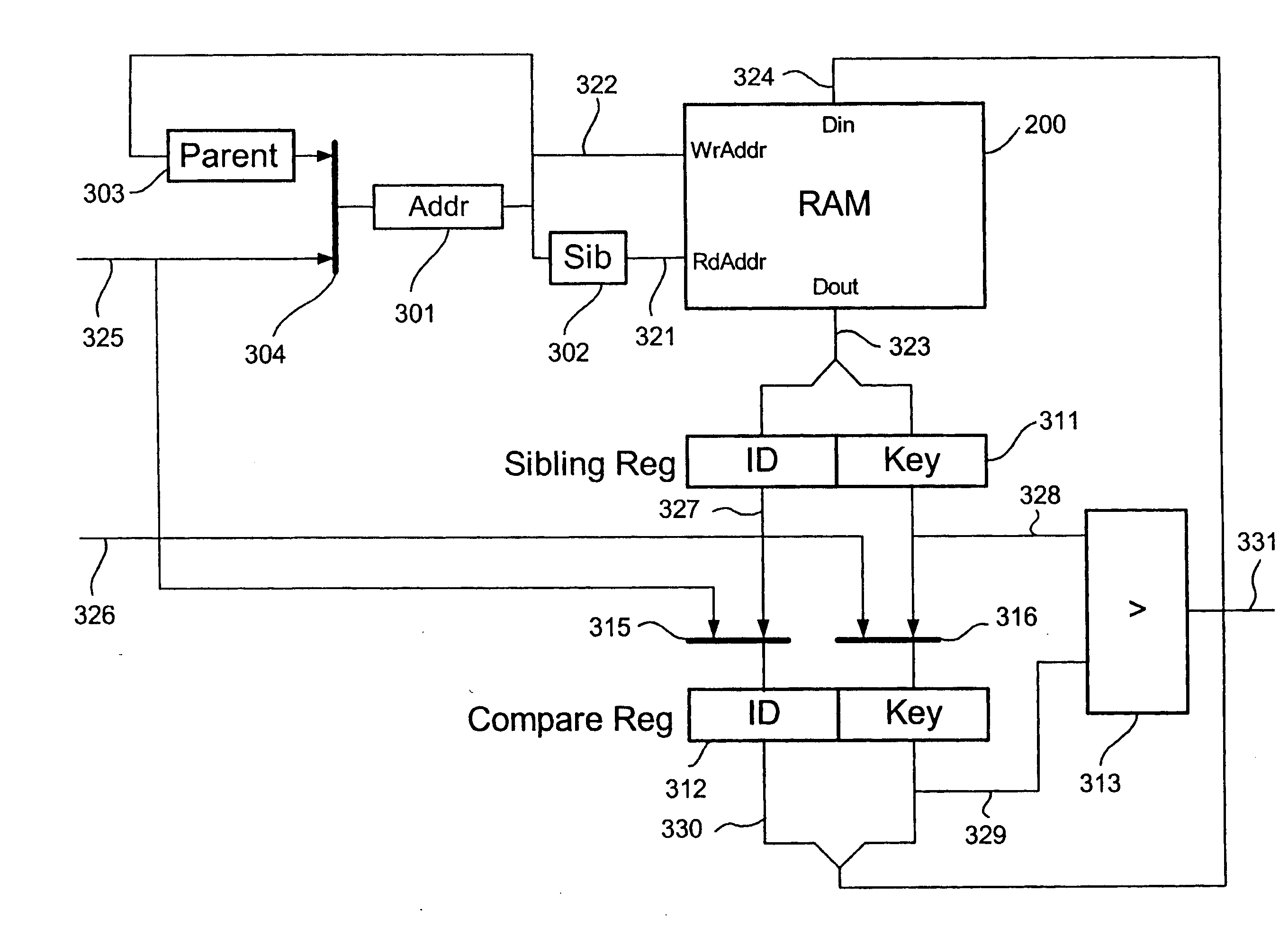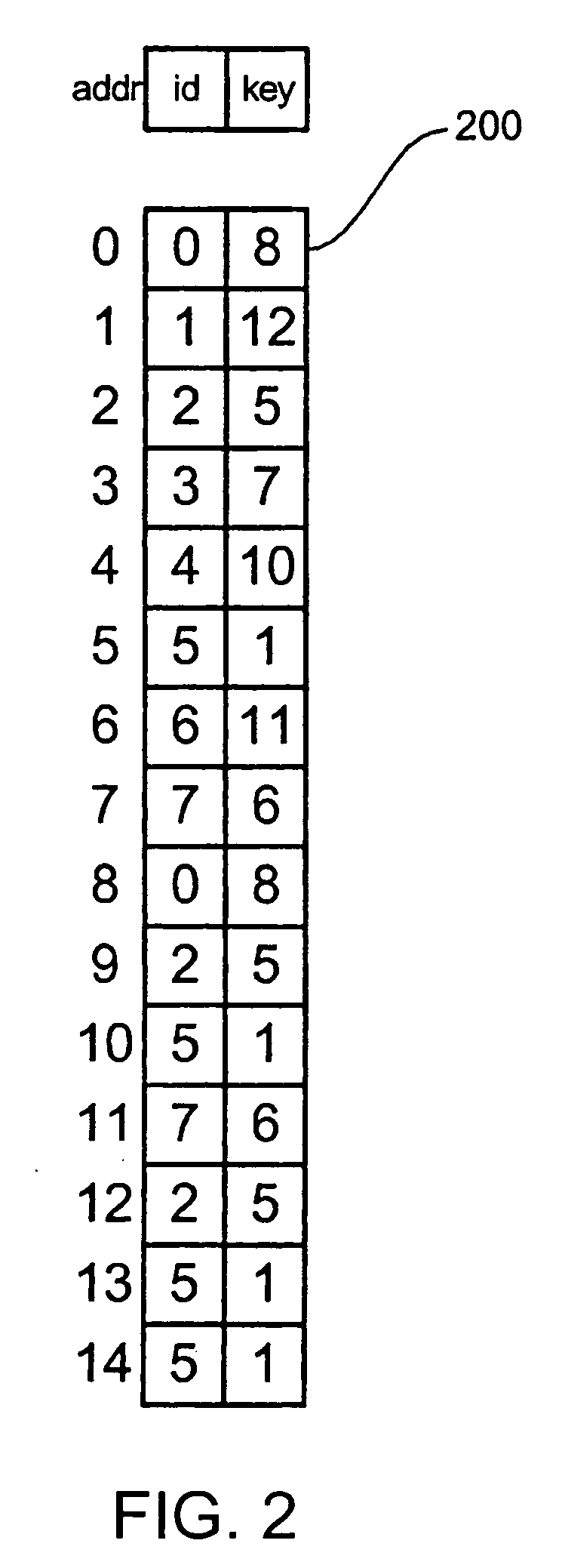Apparatus and method for packet scheduling
a packet scheduling and apparatus technology, applied in electrical apparatus, digital transmission, data switching networks, etc., can solve the problems of packet quality of service (qos) experienced by packets on a network, requiring excessive buffer space, and other applications cannot tolerate packet loss, so as to achieve fast scheduling
- Summary
- Abstract
- Description
- Claims
- Application Information
AI Technical Summary
Benefits of technology
Problems solved by technology
Method used
Image
Examples
Embodiment Construction
[0049] A description of preferred embodiments of the invention follows.
Packet Scheduling Using Tournament Sort
[0050] The data structure used to select the queue with the lowest counter is illustrated in FIG. 1. The figure shows a tree of triples. Each triple contains an address, a queue ID, and the associated counter value or key. The leaves of the tree 100-107 represent the counters associated with each queue. For each of these leaves, the address and queue ID are identical and the key holds the value of the counter associated with the identified queue. For clarity the figure shows only eight queues; however, in the preferred embodiment, there are 4,096 queues.
[0051] Each internal node of the tree 108-114 of FIG. 1 represents the results of a match in the tournament among the leaf nodes. For example, node 109 represents the result of a match between leaf nodes 102 and 103. Because node 102 has a lower key, it wins this match, and node 109 records this win by copying both the qu...
PUM
 Login to View More
Login to View More Abstract
Description
Claims
Application Information
 Login to View More
Login to View More - R&D
- Intellectual Property
- Life Sciences
- Materials
- Tech Scout
- Unparalleled Data Quality
- Higher Quality Content
- 60% Fewer Hallucinations
Browse by: Latest US Patents, China's latest patents, Technical Efficacy Thesaurus, Application Domain, Technology Topic, Popular Technical Reports.
© 2025 PatSnap. All rights reserved.Legal|Privacy policy|Modern Slavery Act Transparency Statement|Sitemap|About US| Contact US: help@patsnap.com



